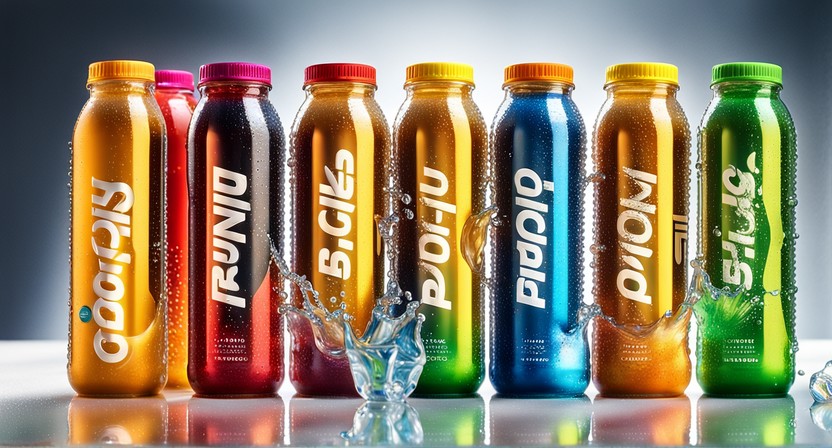Do You Need Sports Drinks on Gym Days?
Discover whether you really need sports drinks for your gym sessions. Dive into the world of sports drinks and find out if they're essential or just hype!

When it comes to fueling your gym sessions, there's a lot of buzz around sports drinks. But are these colorful, electrolyte-packed beverages really necessary for your average workout? Let’s dive into the world of sports drinks and explore whether they're a gym day essential or just a hyped-up hydration option.
Whether or not you need sports drinks on gym days depends on the intensity and duration of your workout, as well as your personal sweat rate and preferences. For most regular workouts, water does the job perfectly. However, in certain conditions, sports drinks can be a valuable tool to maintain hydration and energy levels.
Remember, the key to a successful fitness journey is understanding your body's needs and responding accordingly. Stay hydrated, stay motivated, and keep pushing your limits!
Understanding Sports Drinks
Sports drinks are designed to replenish fluids and electrolytes lost through sweating and provide a carbohydrate boost. They typically contain water, electrolytes like sodium and potassium, and sugars. The idea is to quickly rehydrate the body and provide immediate energy.
The Role of Hydration in Fitness
Hydration is key in any fitness regime. Water helps regulate body temperature, lubricate joints, and transport nutrients to give you energy. When you work out, you lose water and electrolytes through sweat. The harder or longer you exercise, the more you lose, and this can impact your performance and recovery.
When Sports Drinks Make Sense
For most people who exercise at a moderate intensity or for short durations, plain water is sufficient for staying hydrated. However, sports drinks can be particularly beneficial in specific situations:
-
Extended Workouts: When you exercise for more than an hour, especially if it involves high-intensity activities like running a marathon, playing a long soccer game, or enduring a lengthy cycling session, your body not only loses water but also crucial electrolytes and energy. Sports drinks contain a balance of electrolytes (like sodium and potassium) and carbohydrates (in the form of sugars), which can help maintain your body’s electrolyte balance and provide you with the energy needed to continue performing at a high level.
-
High-Intensity Sessions: Workouts such as HIIT (High-Intensity Interval Training), intense CrossFit sessions, or even a fast-paced basketball game can cause you to sweat profusely. This sweating is not just water loss; it's also a loss of electrolytes, which are vital for muscle function and hydration. In hot and humid conditions, this loss is even more pronounced. Sports drinks can replenish these electrolytes more effectively than water alone, helping to prevent cramps and maintain muscle function.
-
Sweat Rate: People vary in how much they sweat. If you're someone who sweats a lot even during a moderate workout, you might lose electrolytes at a faster rate. In this case, a sports drink can be beneficial in replacing the lost electrolytes, which are crucial for muscle function and overall hydration.
-
Taste Factor: Let’s face it, sometimes water can be a bit boring, and the flavor of sports drinks can make it more appealing to drink fluids. This is particularly helpful if you struggle to drink enough during a workout. The pleasant taste can encourage you to consume more fluids, thus keeping you better hydrated.
The Downside of Sports Drinks - Detailed Insights
While sports drinks can be advantageous in certain scenarios, they also come with downsides that should be considered:
-
Sugar Content: Many sports drinks are high in sugars. While these sugars can provide quick energy, consuming them in excess or during light activities can lead to unnecessary calorie intake, which might be an issue if you're watching your weight or sugar intake. The high sugar content can be counterproductive for those engaging in light to moderate activities.
-
Dental Health: The combination of acidity and sugar in sports drinks can be harmful to your teeth. Frequent consumption can lead to dental issues like tooth erosion or decay. The acidic nature of these drinks can weaken tooth enamel, making it more susceptible to decay.
-
Cost: Regularly buying sports drinks can add up financially. If you're working out regularly, the cost of these drinks can become significant compared to simply hydrating with water, which is often freely available. For those on a budget or who prefer a more economical approach to hydration, sports drinks might not be the best choice.
In summary, while sports drinks have their place in certain high-intensity or extended workout scenarios, it’s essential to weigh their benefits against their downsides, especially considering your specific exercise routine and health goals. For many gym-goers, water will suffice, but for those engaging in longer or more intense workouts, sports drinks can offer additional hydration and energy benefits.
Alternatives to Sports Drinks
If you're not a fan of commercial sports drinks or concerned about their sugar content, there are alternatives:
-
DIY Sports Drink: You can make a homemade version with water, a pinch of salt, and a natural sweetener like honey or agave nectar.
-
Coconut Water: A natural alternative, coconut water contains electrolytes and less sugar than most sports drinks.
-
Electrolyte Tablets: These can be added to water for electrolyte replenishment without the added sugars.
Staying Hydrated the Right Way
Regardless of whether you choose water or sports drinks, staying hydrated is crucial. Here are some tips:
-
Hydrate Throughout the Day: Don’t wait until you’re at the gym to start hydrating. Drink water throughout the day.
-
Monitor Your Urine Color: It should be pale yellow. If it's darker, you need to drink more fluids.
-
Listen to Your Body: Thirst is a late indicator of dehydration. Drink fluids regularly, especially before, during, and after your workout.
-
Weigh Yourself: Weighing yourself before and after exercise can help you understand how much fluid you've lost and need to replenish.